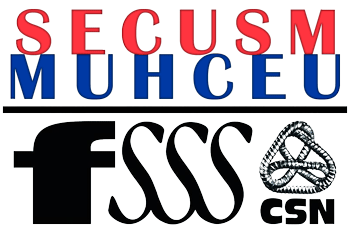The Fédération de la santé et des services sociaux (FSSS-CSN) is proud to announce a pay equity settlement for many job categories in the health and social services network, among paratechnical, auxiliary and trades personnel, as well as clerical, technical and administrative professionals. Tens of thousands of people will see their rate of pay raised and will receive significant amounts of retroactive pay.
This is a great victory,” said FSSS-CSN vice-president Josée Marcotte. It is proof that in 2021, pay equity is not yet a given. For some, it will have taken more than 10 years to obtain fair recognition. Thanks to our tenacity, we have taken a major step forward for the right of women to fair, equitable and inequality-free pay.”
It should be remembered that under the current provisions of the Pay Equity Act, the resolution of pay equity maintenance complaints must necessarily be with the employee organization representing the majority of employees in those occupations. An agreement on pay equity complaints for these categories of personnel must necessarily involve an agreement with the FSSS-CSN. This is what the FSSS-CSN has just achieved following several months of discussions with the Conseil du trésor to reach agreements. Finally, the battle waged by the FSSS-CSN will benefit all workers in the network in these professions.
Health and social services auxiliaries
The health and social services auxiliaries (ASSS), who were in rank 7, are granted rank 8, as of December 31, 2010. More than 6,000 employees will therefore obtain retroactive pay going back to that date. In addition, the ASSSs will also be integrated into tier 9, with retroactivity to April 1, 2020. As an example, the maximum wage for an ASSS was $22.35 per hour on April 2, 2019 and will increase to $25.63 per hour effective April 1, 2022.
Note that this and the following examples also take into account the salary parameters negotiated by the CSN as part of the renewal of the collective agreements.
Beneficiary attendants
For more than 40,000 orderlies, the agreement provides that they will move from rank 7 to rank 8, a change retroactive to March 20, 2016. In addition, all PABs in the public system now move to Rank 9, retroactive to April 1, 2020. The same is true for Northern Settlement Attendants. Paid $22.35 per hour at the top of their range on April 2, 2019, BAPs will earn $25.63 per hour starting April 1, 2022.
Senior Pharmacy Technicians
Approximately 2,500 senior pharmacy technicians (SPTAs) are moving from Rank 8 to Rank 9, with retroactive pay to December 31, 2010. Their wages increase from $23.22 per hour on April 2, 2019 to $26 per hour on April 1, 2022.
Housekeepers (light duty)
Light Duty Cleaners will move from Rank 2 to Rank 3, retroactive to March 20, 2016. Approximately 10,000 people work in this critical job in the public system. Their wages increase from $19.37 per hour on April 2, 2019 to $21.59 per hour on April 1, 2022.
Occupational and Physiotherapy Attendants
Occupational and Physical Therapy Attendants move from Rank 6 to Rank 7, retroactive to March 20, 2016. Their wages increase from $21.55 per hour on April 2, 2019 to $24.13 per hour on April 1, 2022.
Administrative Technicians
Administrative Technicians are moving from Rank 13 to Rank 14, retroactive to March 31, 2010. This is a CSN victory, since both FSSS-CSN and Fédération des employées et employés de services publics (FEESP-CSN) members will benefit. There are about 6000 of them in the major public networks, including 4500 in health and social services. Their salary will increase from $29.05 per hour on April 2, 2019 to $32.32 per hour on April 1, 2022.
Librarians
Finally, approximately 50 health and human services librarians move from Rank 20 to Rank 21, retroactive to December 31, 2010. Their pay increases from $40.98 per hour on April 2, 2019 to $45.70 per hour, effective April 1, 2022.
The FSSS-CSN has fought hard for the recognition of the value of women’s work and will continue to make every effort to stop all wage discrimination. It will continue its representations before the CNESST to settle the 2010 and 2015 pay equity complaints so that medical device reprocessors (MDRP), administrative officers, executive assistants, university teaching assistants, medical secretaries, legal secretaries and purchasers also obtain fair recognition. The FSSS-CSN will also continue its representations for several job categories of health and social services technicians and professionals.

